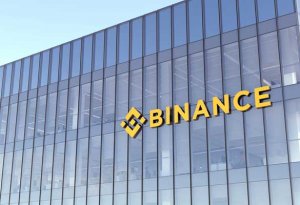This day in history: September 16, 2003 – China issues very first FX bonds via interbank market
On this day in 2003, China launched its very first FX bond, which empowered both investors and the Chinese economy. Very clever indeed, however not accessible to firms outside China…. or is it? We investigate how to gain traction in the important institutional sector in China from the outside

China is regarded as a very recent and largely impenetrable market for most FX firms.
The tug-of-war that occupies the mind of many executives in the retail FX industry when approaching China’s mainland is that it is a highly desirable environment in which to do business, with Chinese investors and traders in their tens of thousands having property portfolios which generate massive monthly incomes which are then maximized by FX portfolio managers that trade the monthly incomes from the rental of illiquid assets on the highly liquid FX market, yet impossible to gain traction due to so many entry barriers.
Thus far, just a handful of firms have got a large network of introducing brokers and portfolio managers that provide large scale business on a continued basis, largely via introducing brokers and representatives in second tier development towns such as Shenzhen and Zhengzhou, some of which produce 90,000 lots per month per introducing broker.
Within China itself, however, the lack of transparency to the outside world due to the impenetrability of the world’s most sophisticated internet firewall that blocks China’s highly advanced economy from the rest of the world and vice versa, has created a smokescreen which does not allow firms to see exactly how advanced China’s own domestic institutional FX business really is.
On this day, September 16, back in 2003, the China Developmnt Bank issued $500 million worth of FX bonds via the interbank market, making it the very first domestic FX bond to be issued by a Chinese financial institution.
The China Development Bank used the money to support state-owned enterprises in debt restructuring, lowering the cost of obtaining and maintaining finance, and mitigating the costs of expensive foreign debts.
As with all Chinese financial markets, those who invested in the FX bonds were restricted to the Chinese financial market system only and were unable to trade them overseas, with Chinese-funded financial institutions being the only counterparties or handlers of the bonds.
This was some thirteen years ago, and yet went relatively unrecognized among Western firms which could potentially work with Chinese partners in order to create integral businesses within Chinese-owned institutions.

The law in China stipulates that in order for a non-Chinese firm to be able to partner with a Chinese institution, there must be either a joint venture partnership between the Western firm and the Chinese entity, or the Western firm must establish a separate Chinese entity, based and hosted in China, which is at least 50% owned by a Chinese entity – and for Chinese entity, read Chinese government.
During a meeting in Boston, Massachusetts recently with Yuhan Mo, Head of Operations and Marketing for APAC at Advanced Markets & Fortex, this exact methodology became a discussion point.
Partnering with exchanges in China?
FinanceFeeds has conducted a vast amount of research in China, and one dynamic that may change the entire framework is that the Chinese government, rather than issuing a regulatory license to FX brokers (which will never happen), may begin ensuring that all FX is conducted via banks.
This way, the government can control the entire system, and have ownership for all accounts, and retail traders will trade with the bank that they have their standard bank accounts with.
We have asked many brokers if they may look at leveraging from this and partnering with Chinese banks. Most say no. Advanced Markets & Fortex have a different view.
“We are very well positioned to go that route but, at the moment, we are discussing opportunities with local Chinese exchanges rather than banks. It’s true that the existing exchange platforms may be very old and not at all appealing to the younger trader but, if you are sophisticated enough, then you can partner with the exchanges in order to provide trading facilities while, at the same time, utilizing technology such as ours to give the traders the type of access they desire” explained Ms. Mo.
FinanceFeeds concurs that working directly with exchanges and with government participation would certainly work, and there is a need to change the infrastructure. Banks or exchanges can own the entire entity on their side, and can handle client funds and be supervised by the government.
Never mind IBs – Try full China-focused brokerages with dedicated connectivity
“We have a hosting facility at Equinix’s HK3 data center, and can assist with the setting up actual brokerages in the region and help those brokers efficiently expand into China.” said Ms Mo.
“Most traders in China experience platform freeze and latency when operating without this type of technology infrastructure. It’s important to remember that China’s censorship and firewall systems interfere with internet speed within the country, primarily due to the extra layers within the internet between China and the “outside world”. Because most brokers host their servers either in Europe or US, Chinese traders are having hard time getting a stable connection to their brokers trade servers and are often exposed to intermittent price interruptions and loss of trades, especially during volatile economic data releases”, Yuhan Mo, Head of Operations and Marketing for APAC at Advanced Markets & Fortex
“These days, execution speed is more important than ever, as many sophisticated Chinese traders and money managers are using automated trading systems to transact their orders. As a full service provider to FX brokerages, we can provide powerful solutions to these very real problems, allowing firms to build their business on a solid foundation” she explained.
“Normally, a trade order is routed from China to either New York or London due to fact that most bank pricing/liquidity originates at NY4 or LD4 data centers.
Chinese firms are often hosted with second and third tier ISPs and there have been many instances in the past where orders been dropped because of an internet connection time-out or because the connection is either unstable or blocked during important economic news releases.
With over thirteen years of interbank FX innovation on the mainland, hallmarked by products such as the release of the interesting FX bond that allowed retail investors to trade whilst strengthening China’s economy, these are certainly matters worthy of consideration









